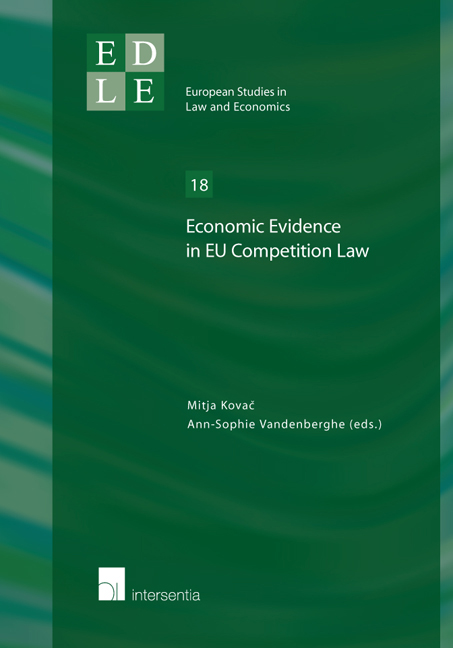Book contents
- Frontmatter
- Dedication
- Preface
- Contents
- List of Contributors
- General Introduction
- PART I ECONOMIC METHODS IN COMPETITION LAW
- PART II ECONOMIC EVIDENCES IN COMPETITION LAW
- PART III INSIDER TRADING, CARTELS AND CRIMINALISATION
- PART IV PRELIMINARY RULINGS AND STATE AID CONTROL
- Chapter 12 State Aid Cases in National Courts and the European Commission
- Chapter 13 Rescue and Restructuring of the State Aid
- Chapter 14 EU Accession Process, Judicial Review and State Aid in Turkish Competition Law
- PART V ECONOMIC EVIDENCE, ENFORCEMENT PROBLEMS AND NATIONAL COURTS
- Index
Chapter 14 - EU Accession Process, Judicial Review and State Aid in Turkish Competition Law
from PART IV - PRELIMINARY RULINGS AND STATE AID CONTROL
Published online by Cambridge University Press: 21 September 2018
- Frontmatter
- Dedication
- Preface
- Contents
- List of Contributors
- General Introduction
- PART I ECONOMIC METHODS IN COMPETITION LAW
- PART II ECONOMIC EVIDENCES IN COMPETITION LAW
- PART III INSIDER TRADING, CARTELS AND CRIMINALISATION
- PART IV PRELIMINARY RULINGS AND STATE AID CONTROL
- Chapter 12 State Aid Cases in National Courts and the European Commission
- Chapter 13 Rescue and Restructuring of the State Aid
- Chapter 14 EU Accession Process, Judicial Review and State Aid in Turkish Competition Law
- PART V ECONOMIC EVIDENCE, ENFORCEMENT PROBLEMS AND NATIONAL COURTS
- Index
Summary
INTRODUCTION
Turkey was recognised as a candidate country for joining the European Union during the Helsinki European Council held on December 10–11, 1999. Competition Policy is one of the titles of the chapters belonging to the negotiations of the accession, which began between Turkey and the EU as of October 3, 2005, following the decision of the European Council dated of December 17, 1994. It is required that Turkey, as well as, all other candidate countries, should create a balance with the acquis communautaire, in relation to competition. The competition acquis covers both anti-trust and state aid controlled policies. It includes rules and procedures to counteract anticompetitive behaviour by companies, to scrutinise mergers between undertakings, and governments from granting state aid, that would distort competition in the internal market.
The competition acquis is, to a large extent, linked to the obligations arising from the Customs Union between the EU and Turkey. The obligations placed on Turkey by the Article 16 of the Association Agreement, known as the Ankara Agreement, which formed an association relationship between the EEC and Turkey and envisaged a progressive establishment of Customs Union (signed on October 12, 1963 and entered into force on December 1, 1964) that specifies the principles in the provisions of the Treaty of Rome, concerning competition taxation and the approximation of laws be made applicable in the association relationship. The Customs Union between the EU and Turkey, which was put into effect on January 1, 1996, was based on the Association Council Decision made in March and has an effect on the adoption of the competition rules. According to Article 39, regulated under the Section heading “ Competition of the Customs Union Decision” numbered 1/95, concerning the completion of the Customs Union between Turkey and the Community, Turkey shall ensure that its legislation in the field of competition rules is made compatible with that of the European Community and it is applied effectively. In this context, Turkey should adopt a law which contains the rules concerning the prohibited behaviour of undertakings within the framework laid down in the EC Treaty and establish a competition authority which would apply the rules effectively within one year aft er the Customs Union was
- Type
- Chapter
- Information
- Economic Evidence in EU Competition Law , pp. 271 - 292Publisher: IntersentiaPrint publication year: 2016



